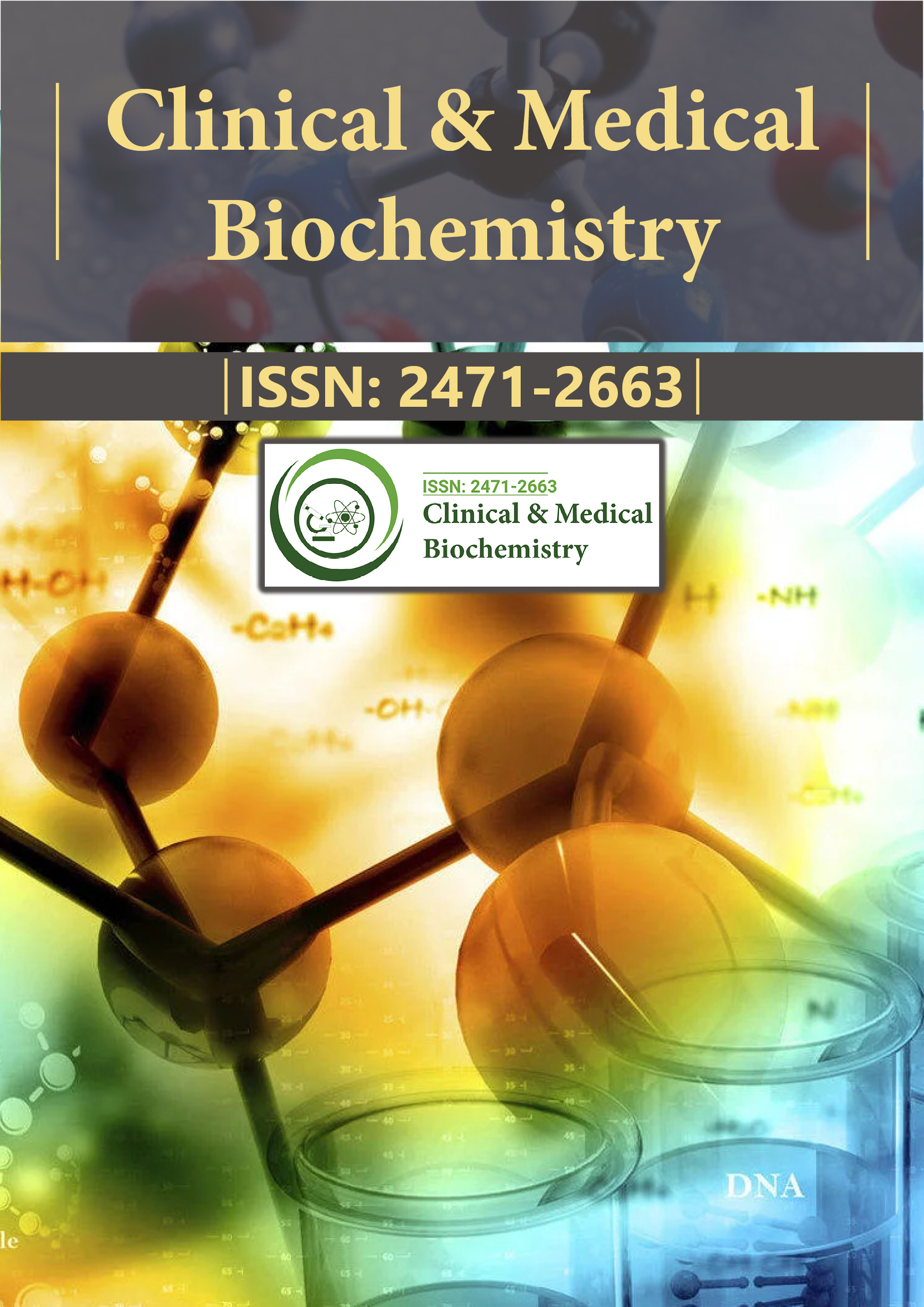Indexed In
- RefSeek
- Directory of Research Journal Indexing (DRJI)
- Hamdard University
- EBSCO A-Z
- OCLC- WorldCat
- Scholarsteer
- Publons
- Euro Pub
- Google Scholar
Useful Links
Share This Page
Journal Flyer

Open Access Journals
- Agri and Aquaculture
- Biochemistry
- Bioinformatics & Systems Biology
- Business & Management
- Chemistry
- Clinical Sciences
- Engineering
- Food & Nutrition
- General Science
- Genetics & Molecular Biology
- Immunology & Microbiology
- Medical Sciences
- Neuroscience & Psychology
- Nursing & Health Care
- Pharmaceutical Sciences
Short Communication - (2025) Volume 11, Issue 2
Understanding Hormones: Their Functions, Regulation, Impact on Health, and Disease
Obi Chude*Received: 30-Apr-2025, Manuscript No. CMBO-25-29624; Editor assigned: 02-May-2025, Pre QC No. CMBO-25-29624; Reviewed: 16-May-2025, QC No. CMBO-25-29624; Revised: 23-May-2025, Manuscript No. CMBO-25-29624; Published: 30-May-2025, DOI: 10.35841/2471-2663.25.11.247
Description
Hormones are chemical messengers produced by specialized glands in the endocrine system that regulate numerous physiological processes essential for growth, development, metabolism, reproduction and homeostasis. These substances travel through the bloodstream to target organs and tissues, where they bind to specific receptors and trigger a cascade of cellular responses. Hormones influence nearly every aspect of human biology, coordinating complex interactions between cells and organs to maintain internal balance and adapt to changing environments. The intricate regulation of hormone production, secretion and degradation is critical for normal functioning and disruptions in hormonal balance can lead to a variety of disorders affecting health and quality of life.
The endocrine system includes glands such as the hypothalamus, pituitary, thyroid, parathyroids, adrenals, pancreas, ovaries and testes, each producing distinct hormones with unique roles. The hypothalamus serves as a major control center by producing releasing and inhibiting hormones that regulate the pituitary gland. The pituitary gland, often called the “master gland,” secretes hormones that influence other endocrine glands as well as target tissues directly. For example, the pituitary releases Thyroid-Stimulating Hormone (TSH) to stimulate the thyroid gland and Adrenocorticotropic Hormone (ACTH) to stimulate the adrenal glands. This hierarchical control ensures tight regulation and feedback mechanisms to maintain hormone levels within optimal ranges [1].
Thyroid hormones, primarily Thyroxine (T4) and Triiodothyronine (T3), regulate metabolism, growth and development. They influence basal metabolic rate, oxygen consumption and protein synthesis. Proper thyroid function is essential for normal brain development in infants and children. Hypothyroidism, caused by insufficient thyroid hormone production, results in fatigue, weight gain, cold intolerance and cognitive impairment. Conversely, hyperthyroidism leads to increased metabolism, weight loss, heat intolerance and nervousness. Disorders of the thyroid gland are among the most common endocrine diseases worldwide and can often be diagnosed by measuring hormone levels in the blood [2, 3].
Adrenal glands produce cortisol, aldosterone and catecholamines such as adrenaline and noradrenaline. Cortisol, often called the “stress hormone,” plays a critical role in metabolism, immune response modulation and adaptation to stress. It increases blood glucose levels, suppresses inflammation and affects cardiovascular function. Aldosterone regulates sodium and potassium balance, influencing blood pressure and fluid homeostasis. Catecholamines prepare the body for “fight or flight” responses by increasing heart rate, blood pressure and energy availability. Disorders such as Addison’s disease (adrenal insufficiency) and Cushing’s syndrome (excess cortisol) illustrate the significant impact of adrenal hormone imbalances on health [4].
Pancreatic hormones, especially insulin and glucagon, regulate blood glucose levels and energy metabolism. Insulin lowers blood glucose by promoting its uptake into muscle and fat cells and stimulating glycogen synthesis in the liver. Glucagon has the opposite effect, increasing blood glucose by stimulating glycogen breakdown and glucose production. Diabetes mellitus, a chronic metabolic disorder characterized by impaired insulin secretion or action, results in elevated blood glucose and numerous complications including cardiovascular disease, neuropathy and kidney failure. Proper hormonal balance is essential for maintaining glucose homeostasis and overall metabolic health [5].
Sex hormones, including estrogen, progesterone and testosterone, regulate reproductive functions and secondary sexual characteristics. Estrogen and progesterone govern the menstrual cycle, pregnancy and development of female sexual traits. Testosterone drives male reproductive function and influences muscle mass, bone density and libido. Hormonal fluctuations during puberty, menstruation, pregnancy and menopause have profound effects on physical and emotional well-being. Disorders such as Polycystic Ovary Syndrome (PCOS), hypogonadism and hormone-sensitive cancers highlight the critical role of sex hormones in health and disease [6].
Hormone action occurs through specific receptors located on cell membranes or within cells. These receptors trigger intracellular signaling pathways that alter gene expression, enzyme activity, or ion channel function. Steroid hormones, such as cortisol and sex steroids, typically bind intracellular receptors and influence transcription directly, whereas peptide hormones, like insulin and growth hormone, bind cell surface receptors and activate second messenger systems. The sensitivity and density of receptors also modulate hormonal responses and can be affected in disease states, contributing to hormone resistance or hypersensitivity [7].
The endocrine system operates through complex feedback loops to maintain hormonal balance. Negative feedback mechanisms, where increased hormone levels inhibit further secretion, are the most common regulatory method. For example, elevated thyroid hormones inhibit TSH production by the pituitary gland. Positive feedback loops, although less common, amplify responses, as seen in the surge of Luteinizing Hormone (LH) that triggers ovulation. Disruptions in feedback can lead to hormone excess or deficiency and subsequent pathology [8].
Environmental factors, stress, nutrition and aging influence hormone levels and actions. Exposure to endocrine-disrupting chemicals found in plastics, pesticides and personal care products has raised concerns due to their potential to interfere with hormone receptors and synthesis. Chronic stress can alter cortisol rhythms, affecting immune and metabolic functions. Nutritional deficiencies or excesses impact hormone production and metabolism. Aging naturally reduces hormone levels, such as decreased estrogen and testosterone, contributing to changes in body composition, bone density and cognitive function [9].
Clinical assessment of hormonal health involves measuring hormone concentrations in blood, urine, or saliva, as well as imaging studies and dynamic tests that evaluate hormone reserve or feedback responses. Hormone replacement therapies are commonly used to treat deficiencies, such as levothyroxine for hypothyroidism and insulin for diabetes. Pharmacological agents can also modulate hormone action, including oral contraceptives, anti-thyroid drugs, corticosteroids and hormone antagonists. Emerging treatments involve targeting hormone receptors and intracellular signaling pathways to provide more precise therapeutic options [10].
Research continues to uncover the complex roles hormones play beyond traditional endocrine functions, including their involvement in mood regulation, immune modulation, aging and cancer biology. The interplay between hormones and genetics, epigenetics and the microbiome presents new frontiers for understanding human health and disease. Personalized medicine approaches aim to tailor hormone-related therapies based on individual variability in hormone metabolism and receptor sensitivity.
Conclusion
In summary, hormones are vital chemical messengers that regulate a vast array of bodily functions necessary for life. Their production, secretion and action are tightly controlled through intricate feedback systems. Imbalances in hormones can have profound effects on physical, mental and reproductive health, underscoring the importance of understanding hormone biology in clinical practice and research. Continued advances in hormone science offer promising avenues for improved diagnosis, treatment and prevention of hormone-related diseases.
References
- Yin D, Chen K. The essential mechanisms of aging: Irreparable damage accumulation of biochemical side-reactions. Exp Gerontol. 2005;40(6):455-465.
- Stadtman ER. Biochemical markers of aging. Exp Gerontol. 1988;23(4-5):327-347.
- Sahabi S, Jafari-Gharabaghlou D, Zarghami N. A new insight into cell biological and biochemical changes through aging. Acta Histochem. 2022;124(1):151841.
- Clarke S. Aging as war between chemical and biochemical processes: Protein methylation and the recognition of age-damaged proteins for repair. Ageing Res Rev. 2003;2(3):263-285.
- Lane RK, Hilsabeck T, Rea SL. The role of mitochondrial dysfunction in age-related diseases. Biochim Biophys Acta. 2015;1847(11):1387-400.
- Amorim JA, Coppotelli G, Rolo AP, Palmeira CM, Ross JM, Sinclair DA. Mitochondrial and metabolic dysfunction in ageing and age-related diseases. Nat Rev Endocrinol. 2022;18(4):243-258.
- Miwa S, Kashyap S, Chini E, von Zglinicki T. Mitochondrial dysfunction in cell senescence and aging. J Clin Invest. 2022;132(13).
- Dugger BN, Dickson DW. Pathology of neurodegenerative diseases. Cold Spring Harb Perspect Biol. 2017;9(7):a028035.
- Shi Y, Ma P. Pharmacological effects of Astragalus polysaccharides in treating neurodegenerative diseases. Front Pharmacol. 2024;15:1449101.
- Hansson O. Biomarkers for neurodegenerative diseases. Nat Med. 2021;27(6):954-963.
Citation: Chude O (2025). Understanding Hormones: Their Functions, Regulation, Impact on Health and Disease. Clin Med Bio Chem. 11:247.
Copyright: © 2025 Chude O. This is an open-access article distributed under the terms of the Creative Commons Attribution License, which permits unrestricted use, distribution and reproduction in any medium, provided the original author and source are credited.

